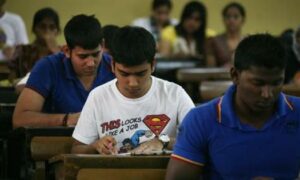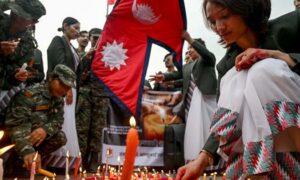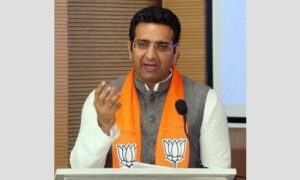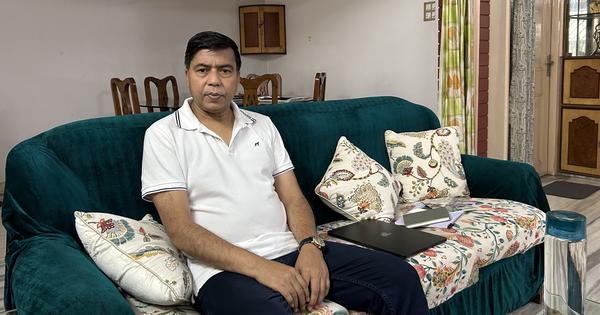
Habibe Millat shook his head fervently, his hands rising up to his face in disgust, as he recalled how he fled Dhaka in October 2024 after a student revolution swept through Bangladesh.
“I did not see sunlight for seven weeks while I was hiding in Dhaka,” said the 59-year-old former MP from Awami League, the Sheikh Hasina-led party that ruled Bangladesh with an iron grip for 15 years until it was overthrown by a popular uprising.
While Hasina flew to Delhi to escape the violent mobs on August 5, 2024, Millat was able get away only several weeks later. The journey to Kolkata took him 22 hours, he said, as he made his way across the border by car, motorbike and on foot.
“Even once I got here, I had to sleep on the floor for four nights because I had no money,” the former heart surgeon added. In 2007, he had left his practice in Scotland to return to Bangladesh and join the Awami League. He served two terms as a member of Parliament till 2024.
Now in exile in Kolkata, he lives in an apartment rented by his wife in a leafy suburb. Sitting on a sofa in the living room of this modest apartment, he spoke to Scroll about what he is doing to tackle the ban that Nobel laureate Muhammad Yunus’s interim regime has placed on his party in Bangladesh.
“In the last one year, we have recorded at least 637 instances of Awami League workers getting lynched by mobs,” Millat claimed. “A total of 116 MPs were put behind bars.”
He documents such alleged excesses against his partymen for the Global Centre for Democratic Governance, a think tank registered in Canada. The goal, he explained, is to ensure that the ban on Awami League is lifted, allowing it to participate in the polls.
Millat is, according to his own estimate, one of roughly 1,000 leaders from his party who are currently living in India. Most of them are in Kolkata.
Last month, a BBC report stating that the Awami League had opened an office in Kolkata caused a furore in Dhaka. In a public statement, Bangladesh’s foreign ministry described it as an “unambiguous affront” against the country and called for its “immediate closure”. New Delhi responded, in turn, by calling the reaction “misplaced”.
Four Awami League leaders that Scroll spoke to, took great pains to deny the report. “We are social animals,” Millat said, downplaying the issue. “If five of us sit in one place for adda, you cannot call it an office.”
Office or no office, these Awami League politicians meet each other frequently in Kolkata’s cafes and hold virtual discussions with party workers across the border, Scroll has learned. Some of them even make trips to Delhi to meet Hasina and plan for their return ahead of the February 2026 election in Bangladesh.
Practicing politics in exile
Kolkata and India have long been a second home for the Awami League, Millat noted. During the Liberation War, the party ran the provisional government of Bangladesh from the city.
But in recent years, public sentiment in Bangladesh has shifted away from India, making it difficult for the Awami League to be seen as operating from here.
“A lot of people in Bangladesh believe that India treats us like one of its states,” he admitted. “We have to play it very safe. It is tricky.”
Shafiul Alam Chowdhury Nadel, the party’s organising secretary, seconded him. Sipping a cup of Americano coffee in the food court of a Kolkata mall, he dismissed the BBC report. “The so-called office is owned by a local businessman who is known to us,” Nadel said. “He lets us use it sometimes. Some of us just sit there and chat in the evenings.”
Not long ago, Nadel was a director of the cash-rich Bangladesh Cricket Board. But when Scroll met him in Kolkata, we found him living a typical middle-class life, queuing up at the bank and haggling with rickshaw-drivers for Rs 30.
While his fortune has waned, his loyalty to the party has not. If what the BBC had found was indeed an Awami League office, he argued that they had “five or six such offices” in all of Kolkata.
The report, Nadel alleged, was meant to “embarrass” his party as well as India. “The Indian government would never allow a political party from another country to set up its office and carry out political activities from here,” he said.
So paranoid are some Awami League exiles that SM Kamal Hossain, another former MP, straight up denied being in India even as he spoke to Scroll using an Indian phone number.
“I am not in India,” he said. “Those of us who are outside Bangladesh are trying to communicate with our local workers and rebuild the party organisation in our respective areas. We would never do anything that embarrasses the Indian government.”
However, others like the student leader Saddam Hussain were less guarded in discussing their activities. Faced with an attempt-to-murder case back home in Dhaka, Hussain has set up his base in the New Town area close to Kolkata airport. He spends his days talking to other student activists in Bangladesh.
“Dissatisfaction is growing among the people,” he claimed, citing a supposed spurt in street crimes and corruption since Yunus took over the reins of government. Through regular protests, the Awami League is trying to corner the Yunus regime, he said.
Hussain is among the few partymen to have obtained an audience with Hasina recently. He described the experience as “heart-touching” and “inspiring”. “She is confident of our victory,” he added. By victory, he meant that the ban on the Awami League would be lifted, paving the way for it to take part in the upcoming election in February 2026.
Millat, too, said that if his party is allowed to participate in the next election, it would corner a sizable chunk of the popular vote, given its organisational strength in some pockets of the country.
It had done so, he pointed out, in the 1979 elections that were held four years after the assassination of the party’s tallest leader, Sheikh Mujibur Rahman.
Incidentally, at that time too Sheikh Hasina, Rahman’s daughter and political successor, was exiled in Delhi. “Even in such a difficult time, we managed to get 25% of the vote,” he said.
Rivals ganging up to keep Hasina out
But Awami League’s principal rivals, the National Citizen Party and the Bangladesh Nationalist Party, are bent upon not letting it compete against them. In fact, representatives of both political parties characterised the Awami League as a “fascist” organisation.
“There is no possibility of Awami League contesting the next election,” said Sarwar Tusher, a co-convenor of the National Citizen Party. “There are many disagreements among the political parties here. But we have a firm, nationwide consensus on not letting Awami League contest elections.”
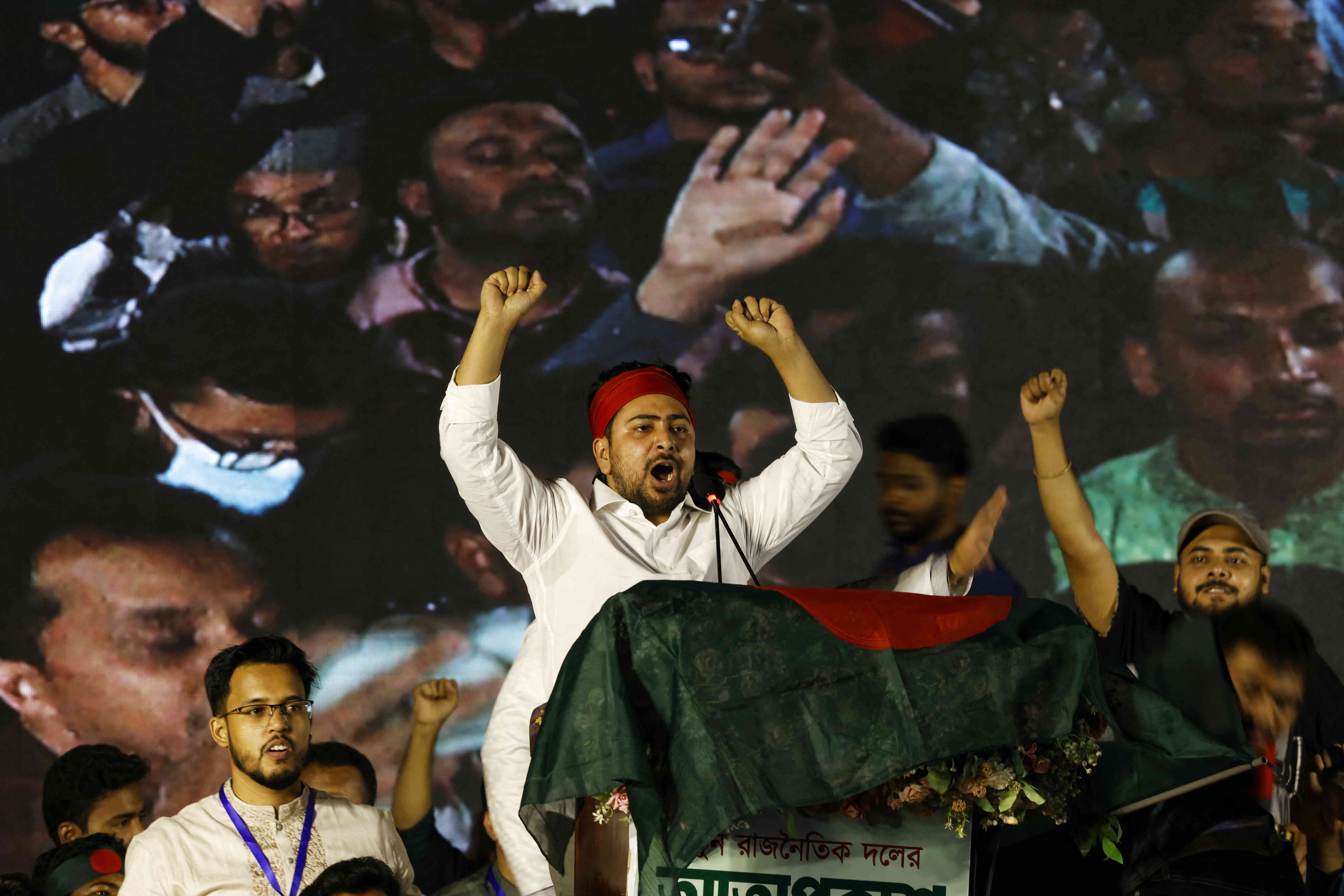
Formed in February, the National Citizen Party is chiefly made up of student activists who led the movement against Hasina last year. It suffered a major setback in the Dhaka University polls earlier this month. The adverse results, Tusher admitted, showed that the party urgently needs to strengthen its organisation on the ground before the national election.
Asked if he envied the Awami League’s ground presence and its core support base, he was defensive. “The last fair election in Bangladesh was in 2008,” he argued. “Many new voters have joined the electorate since then. Their loyalties are not fixed to any political party. That is why the number of Awami League’s fixed voters has reduced a lot.”
In contrast, Ruhul Kabir Rizvi, senior joint secretary of the Bangladesh Nationalist Party, was reticent about the electoral prospects of the Awami League. He focused on criticising it for taking the country’s democracy to an “unprecedented” brink last year and demanded “exemplary punishment” for its leaders.
Rizvi pointed out that the Bangladesh Nationalist Party had also ruled the country from 1991-’96 and 2001-’06. But it never used power to capture democratic institutions like Hasina did during her 15-year reign, he claimed. That is why, in his view, public sentiment had turned against the Awami League and India would do well to recognise that.
“It is wrong for India to allow the Awami League to use its territory for carrying out subversive activities against Bangladesh,” Rizvi said. “It is an attack on our sovereignty and independence. I would call it interference.”
‘Baggage that India will have to carry’
Despite these strong words, Rizvi stated that the Bangladesh Nationalist Party wanted good ties with India. He also spoke about his party’s commitment to protecting Hindus and establishing liberal democracy in Bangladesh.
However, New Delhi’s past experiences of dealing with the Bangladesh Nationalist Party and the Jamaat-e-Islami have been uneven. Several Indian diplomats who served in Dhaka have spoken publicly about how these two parties fuelled insurgencies in India’s North East when they were in power.
Some have argued that this pushed India into the Awami League’s corner, making it complicit in the Sheikh Hasina regime’s excesses in the eyes of many Bangladeshis. Any election without the Awami League would essentially be a fight between players seen by analysts in Delhi as indifferent, even hostile, to Indian interests.
Retired diplomat Veena Sikri, who was the Indian ambassador in Dhaka from 2003 to 2006, suggested that it is in India’s best interest to ensure a “free, fair and inclusive” election in Bangladesh.
“Unless the election is free, fair and inclusive, it will not be accepted and it will create more instability,” she added. “The Bangladesh Nationalist Party and the Awami League, being the two largest parties, are very well-equipped to work together and ensure inclusivity.”
But the interim government in Bangladesh has not indicated willingness to allow any space to the Awami League thus far. If anything, Yunus has objected to Hasina’s political activities from India during interactions with Prime Minister Narendra Modi.
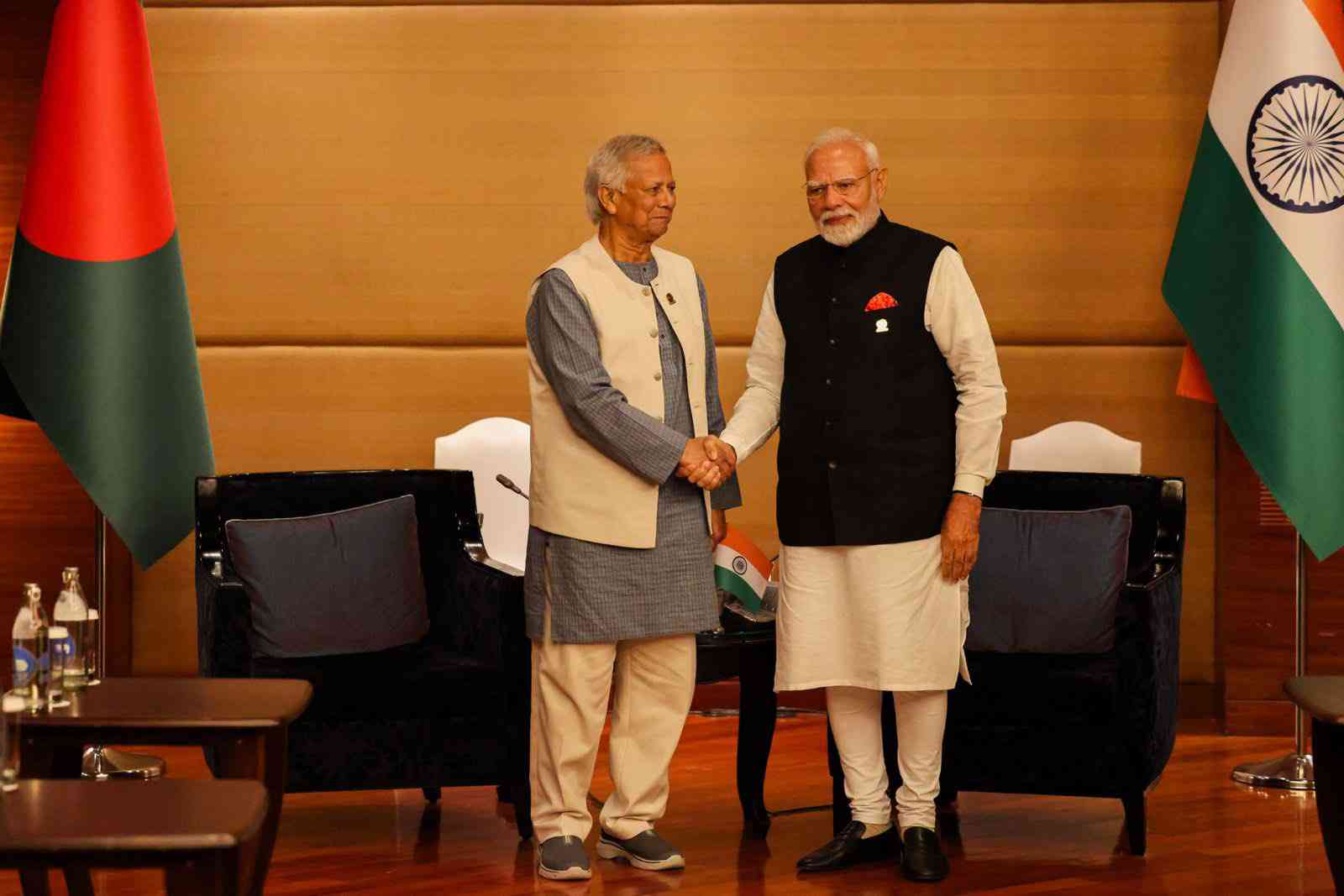
Aditya Gowdara Shivamurthy, an associate fellow at the Observer Research Foundation, said that the Awami League’s presence in India could be an irritant in the India-Bangladesh relationship.
For India, though, sending Hasina back or outlawing her party is not an option as that would send the wrong message to other pro-India leaders in the neighbourhood, he contended.
“So that is the baggage that India will have to carry,” Shivamurthy explained. “In South Asia, parties have made comebacks in the past. If a party has stayed in power for so long and if there are people who have benefited from it, that constituency will come back to it at some point.”
However, he acknowledged that an Awami League comeback, if at all it takes place, could take several years. “For India, now, there is a realisation that we will have to engage with whoever comes to power in the next election,” he added.
📰 Crime Today News is proudly sponsored by DRYFRUIT & CO – A Brand by eFabby Global LLC
Design & Developed by Yes Mom Hosting

